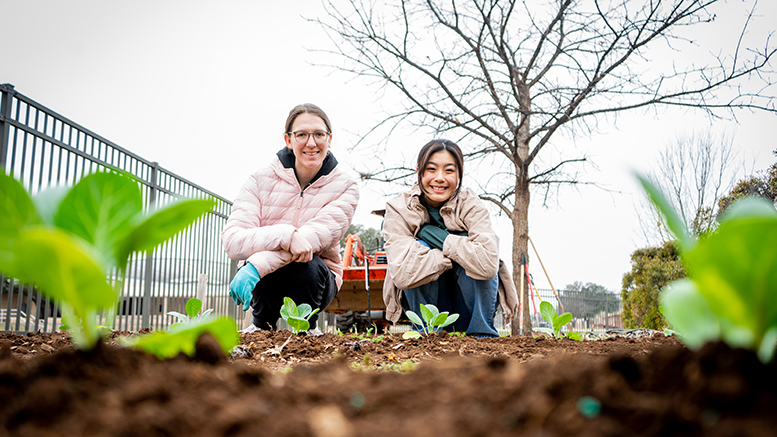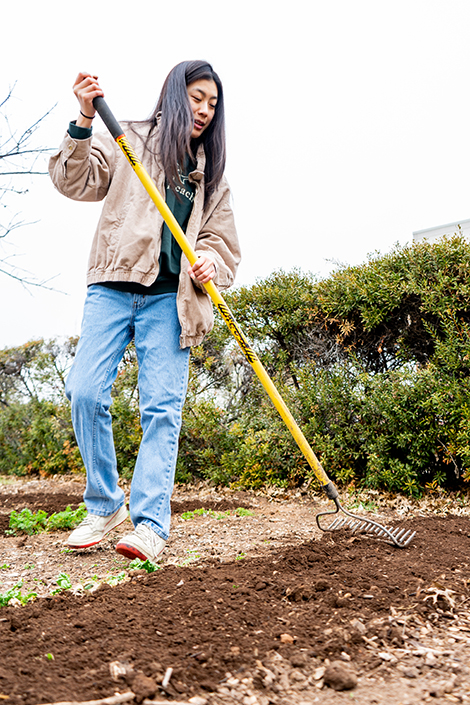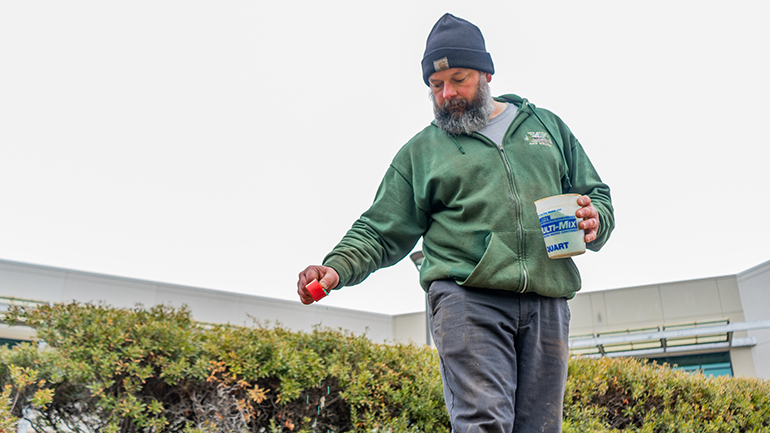Community garden offers chance to get back to nature, contribute to Mustangs Pantry
The National Collegiate Honors Council included the Redwine Honors Program at Midwestern State University in a feature on service learning on its webpage celebrating 100 years of honors education in the United States.
The article “Community Garden” recognized the community garden started by the Redwine Honors Program during the Fall of 2020. The project was a success as they produced 69.34 kg (152.86 pounds) of produce valued at $242.01 and donated it to the Mustangs Pantry.
But that’s not the only prize MSU Texas students involved in the charitable project have experienced since starting the garden three years ago. A chance to be outside, learn gardening tips, and help others motivates the group. Steve Garrison, Director of the Redwine Honors Program, said students see the garden as “a source of pride in the program as a center of our community.”
“I’ve always liked gardening, and I do it with my family all the time, so it reminds me of that,” Evanne Kleinert said. “I like that we get to donate it all to the Mustangs Pantry.”
Tiffany Nguyen said it was a chance to get some exercise in and do something meaningful. “Gardening reminds me of my childhood. We’re learning how to settle the soil and everything and how to plant it,” she said.

Both have enjoyed the many aspects of the Redwine Honors Program. “I like the community, not only academically but socially because I have made many friends in the program,” Nguyen said.
Jason Cooper, the MSU Texas Grounds Foreperson, enjoys seeing students embracing a charitable cause and the chance to learn from the gardening experience. The variables of North Texas weather and soil can be a challenge.

“We’re seeing what we can get to give a good yield,” Cooper said. “We hope to have as much as possible to send to the in-house Mustangs Pantry.”
Hopefully, more gardens are in store for the students.
“They get a chance to see where it all starts with the soil,” Cooper said. “That kind of self-sufficiency in gardening is often lost in a world of lightning-fast information. I think it’s very advantageous. There’s a lot to be said about the carbon footprint if you can grow your food without a third party; it saves money all the way around.”
Cooper’s passion for his work continues.
“I love being outside, and that’s why I’ve done grounds work for so long,” he said. “Being outdoors and working with plants and soil, understanding that cycle, and fostering other living things is definitely a psychological high for positivity. I think it’s a very therapeutic reconnection.”

